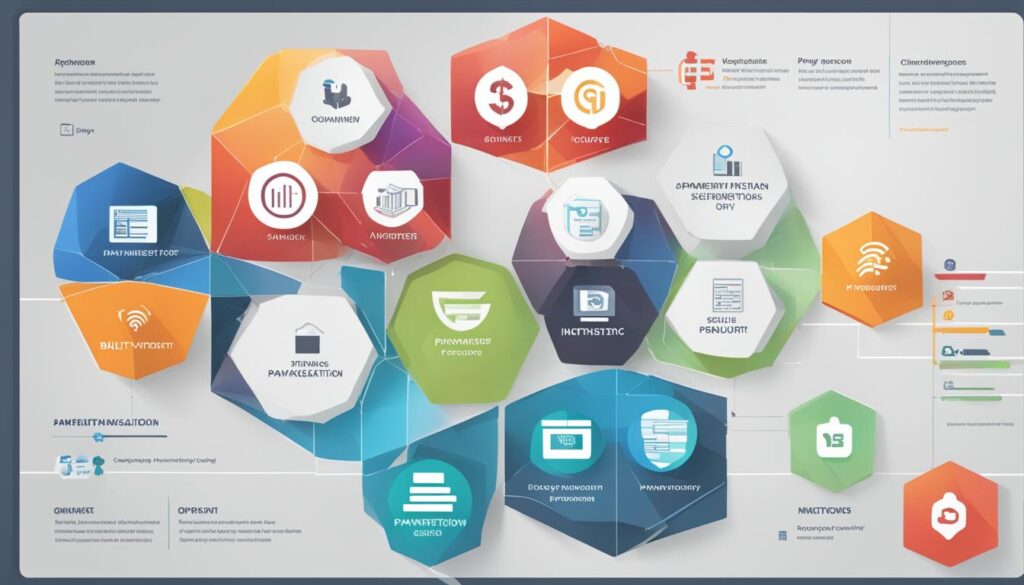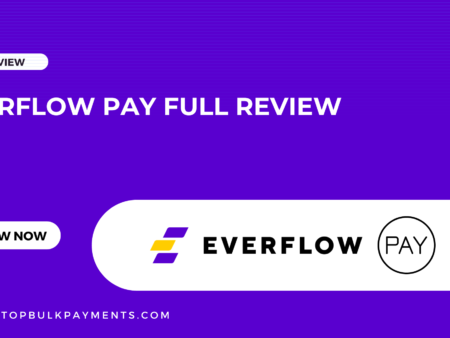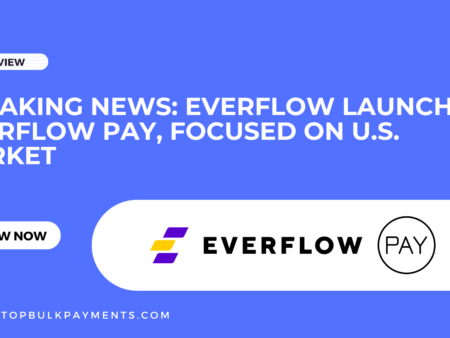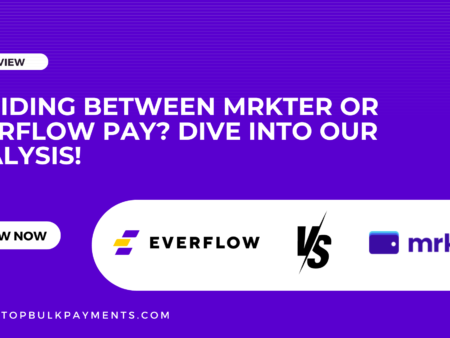
As a business owner, I understand the importance of selecting the best bulk payout platform to meet your needs. With so many options available, it can be overwhelming to determine which platform will provide the most value and efficiency for your business. That’s why I’ve compiled a list of the five key factors you should consider when selecting a bulk payout platform. By focusing on these factors, you can make an informed decision and ensure that you choose the top payout platform for your business.
Key Takeaways:
- Consider support services offered by the provider, such as 24/7 support and training resources.
- Reliability and uptime are crucial factors to ensure smooth business operations.
- Payment security is paramount, so choose a provider that offers encryption, tokenization, and PCI compliance.
- Experience and references in your industry are important indicators of a reliable provider.
- Review the contract agreement carefully, paying attention to cancellation fees and pricing transparency.
Support Services
When it comes to selecting the right bulk payout platform for your business, the support services offered by the provider are a crucial factor to consider. As a merchant, it’s important to have access to timely assistance and resources to ensure smooth operations. Look for a merchant services provider that offers comprehensive support services.
24/7 Support
One of the key aspects to look for is 24/7 support. Your business operates around the clock, so it’s essential to have a provider that is available whenever you need assistance. Make sure the provider offers support via multiple channels, including phone, email, and live chat. This way, you can reach out for help at any time and receive prompt and efficient support.
Resources and Training
In addition to round-the-clock support, consider whether the bulk payout platform provider offers resources and training to help you navigate payment processing equipment. Look for fact sheets, user guides, and tutorials that can assist you in understanding the platform’s features and functionalities. Training materials can be especially beneficial if you are new to payment processing or if you are implementing new equipment in your business.
| Support Services Features | Benefits |
|---|---|
| 24/7 support via phone, email, and live chat | Ensures assistance is available whenever needed |
| Access to resources like fact sheets and user guides | Helps merchants navigate payment processing equipment |
| Training materials and tutorials | Aids in understanding platform features and functionalities |
By choosing a bulk payout platform provider with comprehensive support services, you can ensure that your business receives the assistance it needs to run smoothly. Whether it’s resolving technical issues or learning how to optimize the platform’s capabilities, having reliable support can make a significant difference in your overall merchant experience.
Reliability and Uptime
When selecting a bulk payout platform for your business, one of the key factors to consider is reliability and uptime. Your business operations should run smoothly without any interruptions, even during unexpected outages or network issues.
Look for a provider with a proven track record in reliability. They should have a system in place to handle card authorization network outages, ensuring that your transactions are processed without any delays or disruptions. This is crucial for maintaining customer trust and satisfaction.
By choosing a reliable bulk payout platform, you can have peace of mind knowing that your business will continue to operate seamlessly, regardless of any unforeseen circumstances that may arise. This will help you avoid any potential revenue loss or negative impact on your brand reputation. Prioritize reliability and uptime when making your decision.
Table: Comparison of Reliability and Uptime Among Top Bulk Payout Platforms
| Platform | Reliability Score | Uptime Percentage |
|---|---|---|
| Mrkter.io | 9.4 | 99.9% |
| Tipalti.com | 9.1 | 99.8% |
| TunePay.com | 8.8 | 99.7% |
| Stampli.com | 8.6 | 99.6% |
Table: Comparison of reliability and uptime performance among top bulk payout platforms. The reliability score represents the overall stability and consistency of the platform, while the uptime percentage indicates the amount of time the platform is operational.
Choosing a bulk payout platform with high reliability and uptime is essential for your business. Unplanned network outages can disrupt your payment processing operations, causing inconvenience to your customers and potentially damaging your reputation. Ensure that your chosen platform has a strong track record of uptime and a robust system in place to handle any issues that may arise.
By prioritizing reliability, you can ensure that your payment processes run smoothly and efficiently, minimizing any potential disruptions to your business. This will help you deliver a positive customer experience and maintain the trust and loyalty of your customers.
Payment Security
Ensuring the security of your payment transactions is of utmost importance when selecting a bulk payout platform. By choosing a provider that prioritizes payment sec, you can be confident that your transactions will be safe and secure.
When comparing payout platforms, be sure to consider the security features each platform offers. Some features to look for include PCI compliance, data encryption, fraud detection and prevention, and chargeback protection.
PCI compliance is a must for any payment platform. This compliance means that the platform meets the stringent security standards set by the Payment Card Industry. Data encryption is another important security feature to look for. This ensures that your sensitive payment data is protected from hackers.
Fraud detection and prevention is also crucial in protecting your transactions. A good fraud detection system will flag suspicious activity and prevent it from occurring. Chargeback protection is also important in protecting your business from fraudulent transactions.
When selecting a bulk payment solution, be sure to consider the security features each platform offers. By choosing a platform that prioritizes payment security, you can be confident that your transactions will be safe and secure.
urity, you can protect your business and customer data from potential threats such as data breaches. Here are some key considerations:
- Encryption: Look for a platform that offers encryption technology to safeguard sensitive data during transmission. Encryption converts the data into a secure format, making it unreadable to unauthorized individuals.
- Tokenization: Another crucial security measure is tokenization. This process replaces sensitive payment information with unique tokens. In the event of a data breach, hackers would only obtain these tokens, which are virtually useless without the corresponding encryption keys.
- PCI Compliance: Verify that the bulk payout platform is certified as Payment Card Industry Data Security Standard (PCI DSS) compliant. This certification ensures that the provider abides by strict security standards and protocols to protect your payment data.
Furthermore, it is essential to partner with a provider that offers education and training on payment security issues to keep your business informed and up to date on the latest security practices.
By incorporating robust security measures such as encryption, tokenization, and PCI compliance, you can enhance payment security and protect your business from potential data breaches.
| Security Measures | Benefits |
|---|---|
| Encryption | Protects sensitive data during transmission |
| Tokenization | Replaces payment information with tokens to prevent unauthorized access |
| PCI Compliance | Certification ensures adherence to strict security standards |
| Education and Training | Keeps your business informed about the latest security practices |
Experience and References
When choosing a bulk payout platform for your business, it’s crucial to consider the provider’s experience and references. Working with a provider that has industry experience and a proven track record can greatly benefit your business. Look for third-party references and testimonials to ensure that the provider has a positive reputation in the market.
Industry experience is particularly important as it demonstrates the provider’s understanding of your specific needs and challenges. Consider whether the provider has worked with businesses similar in size and industry to yours. This shows that they have the knowledge and expertise to meet your unique requirements.
Flexibility is another important factor to consider. As your business grows and evolves, you may require changes or additional features from your bulk payout platform. Choosing a provider that is flexible in their approach and can accommodate your future needs will save you time and effort in the long run.
Customer Testimonials
“Working with Mrkter.io Solutions has been a game-changer for our business. Their experience in the industry and their understanding of our specific needs have made them an invaluable partner. We highly recommend their services.”
“Mrkter.io Solutions has been our go-to provider for bulk payouts for many years. Their flexibility and commitment to customer satisfaction have been outstanding. We wouldn’t hesitate to recommend them to other businesses.”
| Provider | Industry Experience | Customer References |
|---|---|---|
| Mrkter.io | 2+ years in the industry | Positive testimonials from satisfied customers |
Choosing a bulk payout platform provider with experience, references, and flexibility will ensure that you have a reliable and trusted partner for your business needs. Consider the factors mentioned in this section to make an informed decision and select the right provider for your business.
Contract Agreement
When considering a bulk payout platform provider for your business, it’s essential to thoroughly review the contract agreement. Paying attention to the details of the contract will help ensure a transparent and mutually beneficial partnership. Here are some key factors to consider:
- Length of the Contract: Review the duration of the contract and determine if it aligns with your business needs and goals. Be cautious of long-term contracts that may limit your flexibility.
- Cancellation or Early Termination Fees: Understand the terms and associated costs for canceling or terminating the contract before its completion. Avoid providers that impose excessive fees or penalties.
- Pricing Transparency: Look for a provider that offers clear and transparent pricing. Ensure that all fees, including setup, transaction, and support services, are clearly stated in the contract and easily understandable.
By carefully evaluating the contract agreement, you can make an informed decision that aligns with your business objectives and avoids any potential pitfalls or unexpected costs.
Types of Payment Gateways
When it comes to selecting the right payment gateway for your business, it’s important to understand the different types available. Payment gateways can be categorized into three main types: on-site payments, checkout on site, and redirects.
On-Site Payments
On-site payments refer to the type of payment gateway where customers complete their transactions directly on your website. This allows for a seamless and integrated checkout process, providing a convenient experience for your customers. With on-site payments, customers do not need to be redirected to a third-party payment page, resulting in a smoother user experience and increased trust in your brand.
Checkout on Site
Checkout on site payment gateways provide a hybrid approach, allowing customers to initiate the payment process on your website but completing the transaction on a separate payment page hosted by the payment gateway provider. This type of payment gateway offers a balance between a fully integrated checkout experience and the added security and flexibility provided by the payment gateway provider’s infrastructure.
Redirects
Redirect payment gateways direct customers to a third-party payment page provided by the gateway provider to complete their transactions. This type of gateway is commonly used by businesses that prioritize security and compliance, as the transaction occurs within the secure environment of the payment gateway provider. While redirects may introduce an extra step for customers, they offer robust security features and simplify the process of becoming PCI compliant.
When choosing a payment gateway, consider the nature of your business, your customers’ preferences, and your security requirements. Each type of payment gateway has its advantages and considerations, so it’s important to select the one that aligns with your business model and customer expectations.
Payment Gateway Limitations
When selecting a payment gateway for your business, it is important to be aware of its limitations. Understanding these limitations will help you make an informed decision and prevent any potential issues down the line. Here are a few key limitations to consider:
- Card acceptance: Not all payment gateways support all types of cards. Some gateways may have restrictions on accepting certain card brands or specific payment methods. Before choosing a payment gateway, ensure that it supports the cards and payment methods your customers are likely to use.
- International payments: If your business operates globally or plans to expand internationally, it is crucial to choose a payment gateway that supports international payments. Some payment gateways have restrictions on cross-border transactions or may charge additional fees for processing international payments. Consider the specific needs of your business and ensure that the payment gateway you choose can accommodate them.
- Security vulnerabilities: Payment gateways can be vulnerable to security breaches, which can result in the loss of sensitive customer data. It is essential to select a payment gateway provider that prioritizes data security and offers robust encryption and other security measures. Look for providers that are PCI-DSS compliant and have a proven track record in safeguarding customer information.
By considering these limitations and selecting a payment gateway that aligns with your business needs, you can ensure smooth payment processing and a secure experience for your customers.
Table: Comparison of Payment Gateway Limitations
| Limitation | Description |
|---|---|
| Card Acceptance | Some payment gateways have restrictions on accepting certain card brands or payment methods, limiting the convenience for customers. |
| International Payments | Certain payment gateways may not support cross-border transactions or charge additional fees for processing international payments, hindering global business operations. |
| Security Vulnerabilities | Payment gateways can be vulnerable to security breaches, leading to the potential loss of sensitive customer information. It is crucial to choose a provider with robust security measures in place. |
Choosing a Secure Payment Gateway
When it comes to processing payments online, security is of utmost importance. Selecting a secure payment gateway is essential to protect sensitive customer data and maintain trust. Here are key factors to consider when choosing a secure payment gateway:
- Security Measures: Look for a payment gateway provider that prioritizes security. They should offer robust encryption protocols to ensure that all customer data is transmitted securely. Additionally, the provider should have monitoring systems in place to detect and prevent any potential security breaches.
- Reputation: A payment gateway’s reputation is a clear indicator of its reliability and trustworthiness. Research customer reviews and ratings to gauge the experiences of other businesses. Additionally, look for providers that have established partnerships with reputable companies to further validate their reliability.
- Integration and Compatibility: A secure payment gateway should seamlessly integrate with your existing technology stack. Ensure that the provider offers plugins or APIs that are compatible with your e-commerce platform or point-of-sale system. This will allow for smooth and efficient payment processing without any technical disruptions.
“Choosing a secure payment gateway is not a decision to be taken lightly. It is crucial to prioritize security measures, consider the reputation of the provider, and ensure seamless integration with your existing systems.”
By carefully evaluating these factors, you can select a secure payment gateway that meets your business needs and protects your customers’ information. Remember, security should always be a top priority when it comes to processing online payments.
| Key Factors | Description |
|---|---|
| Security Measures | Look for encryption protocols and monitoring systems to ensure data security. |
| Reputation | Research customer reviews and partnerships with reputable companies. |
| Integration and Compatibility | Ensure smooth integration with your existing technology stack. |
Choosing a secure payment gateway is not a decision to be taken lightly. It is crucial to prioritize security measures, consider the reputation of the provider, and ensure seamless integration with your existing systems. By doing so, you can safeguard your customers’ information and provide them with a secure payment experience.
Why You Should Stack Payment Gateways
When it comes to optimizing the payment process for your business, stacked payment gateways can offer increased flexibility and convenience for both you and your customers. By offering multiple payment options, you cater to different preferences and increase customer satisfaction. Stacked payment gateways also provide a backup option in case one gateway experiences an issue, ensuring that your business can continue to process payments seamlessly.
With stacked payment gateways, you have the flexibility to choose from a variety of options based on your business needs. You can select gateways that specialize in specific types of payment methods or those that offer additional security features. By having multiple gateways in place, you can adapt to changing industry trends and customer preferences, ensuring that your business stays ahead of the curve.
Not only do stacked payment gateways provide flexibility and convenience, but they also offer an added layer of security. By diversifying your payment options, you reduce the risk of potential fraud or data breaches. If one payment gateway is compromised, you have other gateways to rely on, protecting both your business and your customers’ sensitive information.
In conclusion, implementing stacked payment gateways is a strategic decision that can benefit your business in multiple ways. By offering multiple payment options, you provide flexibility and convenience to your customers while safeguarding against potential disruptions. Embrace the power of stacked payment gateways to optimize your payment process and enhance your overall business operations.
Subscription Pricing Models
In today’s business landscape, subscription pricing models have become increasingly popular as they offer a recurring revenue stream and allow for better customer retention. When deciding on a subscription pricing model for your business, it’s important to understand the different options available and choose one that aligns with your goals and target market. Here, I’ll explore five common subscription pricing models: flat-rate, tiered, usage-based, per-added-module, and per-user pricing.
1. Flat-rate pricing: This model charges customers a fixed fee regardless of their usage or the features they utilize. It provides simplicity and predictability for customers, allowing them to budget more effectively. However, it may not be suitable for businesses with varying usage patterns or customers who require different levels of service.
2. Tiered pricing: With tiered pricing, businesses offer different packages or tiers of service based on customer needs. Each tier has a set price and provides varying levels of features and benefits. This model offers flexibility for customers to choose the package that best suits their requirements. It can also incentivize customers to upgrade to higher tiers as their needs grow.
3. Usage-based pricing: This model charges customers based on their actual usage or consumption of the product or service. It aligns costs with value and can be attractive for customers who have fluctuating usage patterns. However, it requires accurate measurement and tracking of usage, which may be challenging for certain businesses.
4. Per-added-module pricing: This model charges customers based on the number of additional modules or features they add to their subscription. It allows businesses to scale their pricing based on the value customers receive from each additional module. However, it may require careful consideration of pricing tiers and feature bundling to ensure a fair and attractive offering.
5. Per-user pricing: With per-user pricing, businesses charge customers based on the number of users or seats accessing the subscription. This model is commonly used in software-as-a-service (SaaS) businesses. It allows for price differentiation based on the number of users and can be attractive for businesses with varying team sizes. However, it may not be suitable for businesses with a large number of users or those that require role-based access.
By evaluating the unique needs of your business, customer preferences, and market dynamics, you can select the subscription pricing model that best aligns with your goals and provides the most value to your customers.
Factors to Consider When Choosing a Subscription Pricing Model
Choosing the right subscription pricing model for your business requires careful consideration of several factors. By understanding your value metrics, customer needs, and pricing strategies, you can optimize your monetization strategy and attract and retain customers. Here are some key factors to consider:
Value Metrics
Value metrics are the criteria by which you measure the worth of your product or service. Consider what aspects of your offering drive the most value for your customers. Is it based on usage, features, or access to exclusive content? Understanding your value metrics will help you determine how to price your subscription and ensure that customers feel they are getting the most value for their investment.
Customer Needs
It is essential to align your pricing model with the needs of your target customers. Analyze their preferences, purchasing behavior, and willingness to pay. Understand what they are looking for in a subscription and how much they are willing to invest. By tailoring your pricing model to meet their needs, you can attract and retain loyal customers who see value in your offering.
Pricing Strategies
There are various pricing strategies you can employ when setting your subscription prices. Consider options such as volume-based pricing, freemium models, or tiered plans. Each strategy has its advantages and considerations, so it’s important to evaluate which one aligns with your business goals and target market. A well-designed pricing strategy can help maximize revenue and attract a larger customer base.
By carefully evaluating these factors and conducting thorough market research, you can select a subscription pricing model that accurately reflects the value of your offering and meets the needs of your customers. Remember, pricing is not a one-time decision, and it’s important to regularly review and update your pricing strategy to adapt to market trends and customer feedback.
Conclusion
In conclusion, selecting the right bulk payout platform for your business is essential in meeting the expectations of today’s consumers. By considering factors such as support services, reliability, payment security, experience, and contract agreement, you can make an informed decision that will benefit your business in the long run.
When it comes to payment gateways, understanding the different types and their limitations is crucial. By choosing a secure payment gateway that prioritizes data security and integrates seamlessly with your existing technology, you can ensure a smooth payment process for your customers.
Additionally, when it comes to subscription pricing models, evaluating factors such as value metrics, customer needs, and pricing strategies is key. By selecting a pricing model that aligns with your business goals and target market, you can optimize monetization and attract and retain customers.
In conclusion, by carefully evaluating these factors and making informed decisions, you can set your business up for success with the top bulk payout platform, payment gateways, and subscription pricing models.
FAQ
What are the key factors to consider when selecting a bulk payout platform for my business?
The key factors to consider are support services, reliability, payment security, experience, and contract agreement.
What support services should I look for in a bulk payout platform provider?
Look for a provider that offers 24/7 support via phone, email, and live chat, as well as resources like fact sheets and training.
How important is reliability in a bulk payout platform?
Reliability is crucial. Look for a provider with a proven track record and a system to handle card authorization network outages.
What security features should a bulk payout platform offer?
Look for providers that offer payment security programs like encryption and tokenization, as well as compliance with PCI DSS.
Should I consider the provider’s experience in my industry?
Yes, it’s important to choose a provider with experience working with businesses similar to yours. Ask for third-party references.
What should I consider when reviewing the contract agreement?
Pay attention to the length of the contract, cancellation or early termination fees, and additional fees for support services. Look for transparency in pricing and a cancellation policy that aligns with your business needs.
What are the different types of payment gateways?
Payment gateways can be categorized as on-site payments, checkout on site, and redirects.
What limitations should I be aware of when selecting a payment gateway?
Some payment gateways may not accept all types of cards or have limitations with international payments. Consider security vulnerabilities as well.
What factors should I consider when choosing a secure payment gateway?
Look for a provider that offers visible security measures, maintains PCI compliance, and has a good reputation. Ensure seamless integration with your existing technology.
Why should I stack payment gateways?
Stacking payment gateways offers increased flexibility and convenience for customers, as well as a backup option in case of issues with one gateway.
What are the different subscription pricing models?
The different models include flat-rate, tiered, usage-based, per-added-module, and per-user pricing.
What factors should I consider when choosing a subscription pricing model?
Consider your value metrics, customer needs, and pricing strategies to select a model that aligns with your goals and target market.








